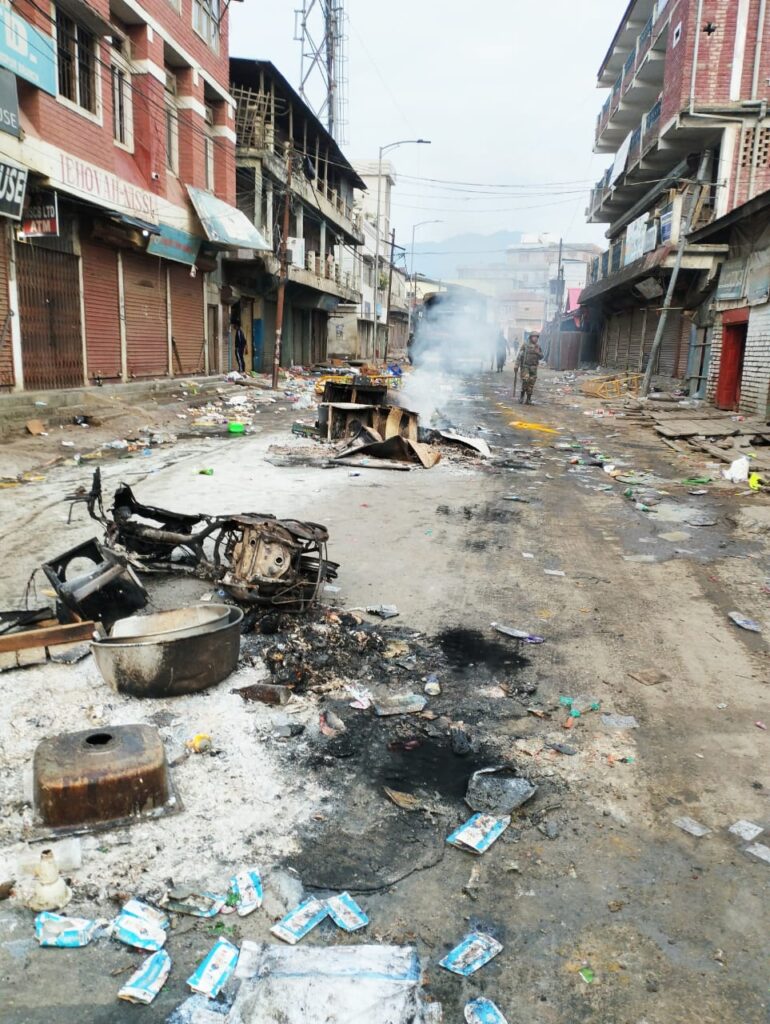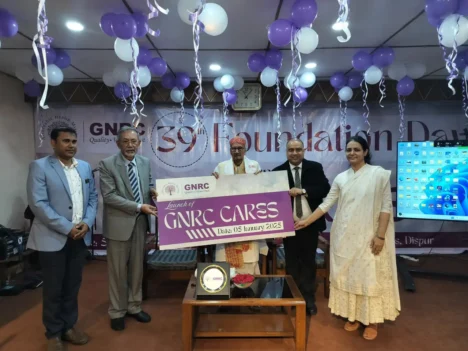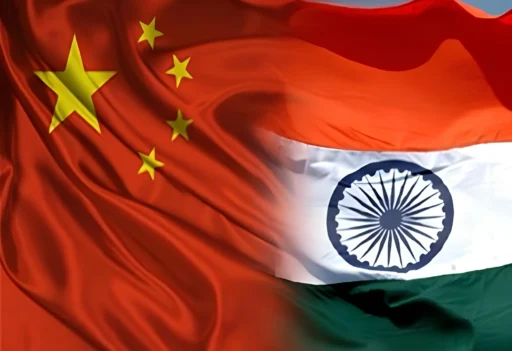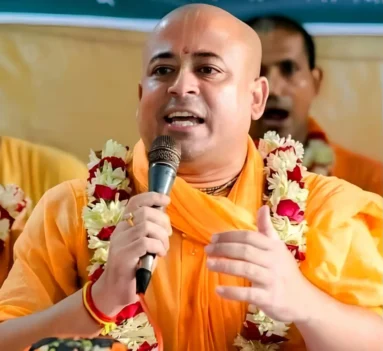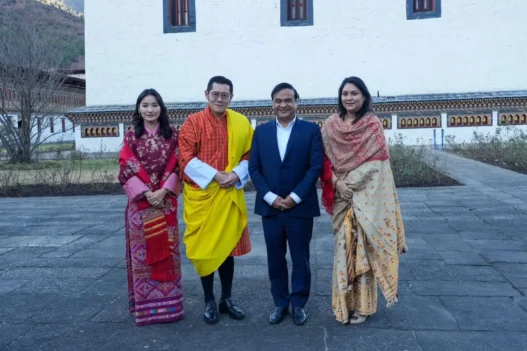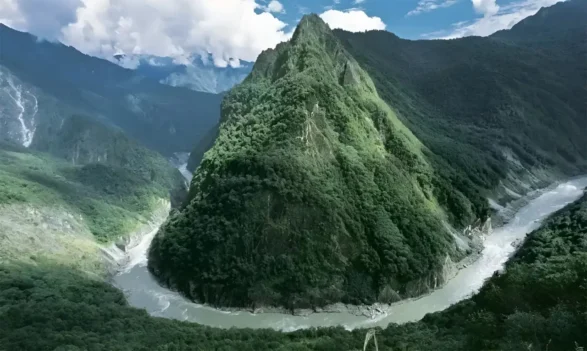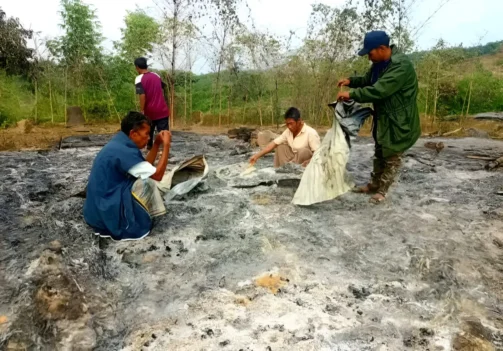It is alarming to learn law and order fell into the hands of the mob with police turning into spectators, watching from the shadows as innocent people were lynching mercilessly in and around Imphal. For those who suffered and managed to escape “protection under the law is as good as a myth.”
“All we could do was pray to the lord almighty to save us as the mob came for us,” recounted a survivor of a horror tale that unfolded at the Moirang police station on May 3.
The current situation in Manipur is not improving and is worsening, as first-hand accounts and stories emerge from victims from the hills who managed to escape the violence. According to the victims’ accounts, Manipur is currently in a poor state and will be in a worse condition in the future “if justice is not served to those who suffered.” The question remains, however, as to what justice really means when many victims are unable to breathe, when escapees are likely to develop psychological disorders for the remainder of their lives, and when properties lost are not just properties but are also significant accounts of memories and histories that are lost with them, and when rehabilitation cannot fully compensate the vast traumatic experiences of a community who has been mislabelled as “illegal immigrants”, “poppy cultivators”, and others.
In the following two stories, there is a great deal of substance in the challenge of assuring justice to the victims, and who is capable of providing justice, and how does that happen? There is a severe issue of the hour that needs to be addressed by the relevant authorities, from the state to the central government.
Story of a 67-year-old resident of Churachandpur
On the fateful day of May 3, Lalkhothang, 67, travelled to Imphal to sign a medical document for his niece, who was undergoing surgery. It did not occur to him that the issue of the peace rally would spiral out of control to such an extent, so he decided to return home by bus that same day but found himself stranded at Moriang Police Station. Initially, 21 people were stranded at the station. Some left with CRPF or BSF escorts later, leaving around 15/16 people at Moirang Police Station. They were unable to sleep in the station and feared that they would not be able to reach home in time.
The public “mob” of young and old stormed the police station and took out all the stored arms and ammunition. A number of women were waiting outside the station, but most of the people who entered the station were men. As Thang cannot run fast, all others ran past him. As the “mob” closed in, he hid in the bathroom of the women police stationed there, covering himself with blankets and remaining silent. Those other tribals identified were picked up by the mob. When the commotion seemed to have subsided, the women police returned and led him to a safer shelter with some of their colleagues. He hid near the bed when the “mob” somehow returned to check on the room.
When they left, the police let him lie down on the bed. Once they had finished everything else in the police station, he heard another round of commotion, where the crowd shouted, “There are two persons who remain unaccounted for”. It was clear how many people had taken refuge there, and they searched accordingly. They picked up Thang’s friend Dallamthang (ambulance driver) first. Thang witnessed him die at the hands of the mob. Then they came for him. While he was covered with a blanket, they “uncovered” him and shot him with a catapult whose “tang” was made of iron. He lost his front teeth on the spot. They picked him up from the bed and hit him in the head, body and legs. He bled profusely from the head. As he was defenceless, he was treated as if he were an animal.
As this continued, he observed that they dragged his friend Dallamthang outside the police station. Once they had beaten him, they left him until the SI (tribal) quickly allowed him to enter the vehicle. Three tribal policemen were present who provided him with a coat and sandals. They left immediately. Their vehicle was also damaged, but they could drive it. Two others seeking refuge escaped along with the three tribal police officers. His comrade was left for dead by the mob, but he survived and crawled out. Although they met people on duty along the way, they were catapulted. Luckily they escaped and did not encounter any untoward incidents on their way home. After being welcomed warmly by their people, they are taken to the Samaritan Hospital for emergency lip stitching. On the morning of May 5, they reached Lamka town around 3 AM. Thang ended by saying, “I could have laid there unconscious and dead, but the way I survived the ordeal is by God’s grace only.”
A narrow escape for an Assam Rifles Jawan
Thanglianmang, 37, 17th AR, Jaisalmer Rajasthan, also shared his tragic story at Moirang Police Station. While travelling from Imphal to Lamka, Mr Thanglianmang was stranded at Moirang Police Station. The ZYO Ambulance carrying Mang and six other passengers, including a hospitalised patient, were attacked by mobs near Moirang. They retreated to Moirang Police Station, seeking shelter and protection. Organised mobs attacked the police station around 9:00 PM on May 4. Though they sought refuge at the Police Station, they were told to flee for their lives. Mang did not know how the mob could target a specific room where nine tribal men were staying.
Having been trained in warfare, he could escape the mob and hide in the bush. In a vengeful manner, the mob lynched anyone they could get their hands on continuously for about 2 hours. By 11:00 PM, when the commotion had quieted down, he returned discreetly and at about 10 meters from the building, he called his friend, Mr Dallamthang, who was left stranded. He replied quietly that he was safe since he had managed to hide in the women’s room. Mang told Dallamthang where he was and asked if he could find him. Dallamthang, terrified of his life, was reluctant to come out from his hiding place, which sadly became his last conversation.
Afterwards, Mang sneaked back into his previous room to see if the fugitives had returned. When he saw the empty room, he felt uneasy about the situation, so he went back to his previous hiding spot only to realise the mob had overheard his conversation with Thang but could not pinpoint where he was exactly. When he saw people grabbing someone within the building, he ran for his life, and someone began chasing him. He climbed to the top of the police sentry post near the police station gate and found it vacant. But soon, he heard footsteps, and thinking it was the end for him, he froze and felt helpless.
“By God’s grace, that footstep was a police officer who told me to run outside the police station and alerted me to an empty room for hiding. Not knowing who to turn to, I felt the Meitei local community and the police were alike, so I retreated to my hiding spot,” he narrated. He then mustered up some courage and secretly returned to the Police Station, hoping to find the three tribal men stationed when they first arrived there.
After failing to locate them, he entered the store room and remained there from 2:00 AM until dawn. By morning, he heard noises near the room and saw the CRPF arriving. There were 3/4 tribal men among the CRPF. He immediately approached them and asked for their shirts to hide his identity. They inquired about the situation that had happened. After he narrated the whole incident, he was immediately provided with protection by the personnel. They informed their superiors to appraise him of the traumatising experience. His superior then spoke with the CRPF DSP and requested the safety of his jawan as he was under his care.
Bishenpur District SP escorted him along with three other women from Churachandpur to safety till Torbung (District border village between Bishunupur and Churachandpur), where they were picked up by the army from Churachandpur.
At the police station at Moirang, Nagas and non-Nagas sought shelter. Though we look the same in all facial complexions, the Zomi, Kuki, Mizo and Hmar were only systemically targeted and hunted while the Naga could remain peacefully.
“Till now, these questions always arose in my mind about how the mob can repeatedly enter police stations, check the rooms, and could identify the non-naga. Are the mob and police colluding on this ethnic cleansing at Moirang Police Station?,” he asked while recounting how of the many who sought shelter at the Police station, only four were escorted to safety. He later learned that the two other friends managed to escape the dreadful night of assault by walking back home on foot for 21kms despite suffering grievous injuries. One man, who was mercilessly tortured and left behind by the mob, assumed to be dead, miraculously reached home safely.
While Manipur Chief Minister Biren Singh announces promises to the tune of five lakhs ex-gratia for those who died, two lakhs for those grievously injured, 25,000 for those with minor injuries, and upto Rs 2 lakh to families whose houses have been burnt down, and rebuilding all houses that have been burnt down, the horrific stories tell a different tale to how such material compensation will possibly never give justice to all the victims irrespective who they are, the tribals or other victims in general, for they have encountered.
The Centre must intervene substantially to investigate how justice can be served at all costs. Where young girls, boys, government officers and their families met a brutal fate, there has to be a more than monetary compensation and that would be only when justice is delivered. For otherwise the scar from this conflict, for whatever reason -rights of one versus the other- it erupted, will always remain and haunt the entire society. The reason is simple, like a Manipur observer says, “doesn’t matter what is the issue, age-old faultline or not, such forms of violence cannot be justice at any cost and there has to be proper investigation.”
Many of the victims shared their reluctance to file an FIR complaint because they lost faith in the administration, specifically the police. As one victim from Lamka said, “Why should I file my experiences to the institution which could do nothing as people were slaughtered? How can I trust those who did nothing and watched the perpetrators to kill so many innocent people.” Such is the situation in Manipur, where the question of trust across the hills and the valley is shattered further. Hence, the question of compensation is insufficient if serious administrative reconsideration and investigation are not sent from the Centre, as most people, the tribals, in particular, are losing faith in the administration.
(Interviewer Observation: One of the individuals, Min, that escaped the dreadful night and walked home, suffered tremendous mental agony and cannot be reached for an interview. In perpetual fear, sleepless nights and severe PTSD reverberate from everyone who has lived through the violent mob lynching. Of the few that had miraculously escaped, not even a handful could be spoken to and interviewed. The victims or the survival needs not only food supplies but immediate and intensive psychological and medical attention.)

